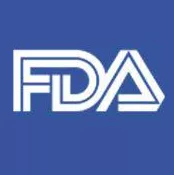How the government shutdown is impacting inspections and food safety

The federal government has been shut down since December 22. What does that mean for food safety?
On January 14, some FDA employees returned to work, albeit as unpaid employees. This was primarily for high-risk food inspections, such as cheese, other dairy products, and fresh produce; some types of baked goods are classified as lower-risk inspections.
FDA commissioner Dr. Scott Gottlieb said that "31 percent of our inventory of domestic inspections are considered high risk," and these are the inspections that the agency is currently trying to resume. High risk foods can include seafood, bakery products filled with custard, ripened cheese and other cheese products, unpasteurized juices, fresh/processed fruits and vegetables, sandwiches, infant formula, and others.”
Products inspected by USDA, such as meat, poultry and processed egg products, haven't been affected since the shutdown began, because they are classified as essential.
Darin Detwiler, Ph.D., director of the Regulatory Affairs of Food and Food Industries program at Northeastern University, spoke to Yahoo Lifestyle and recommended that consumers avoid certain foods, including:
- Unpasteurized juices, ciders, or dairy products
- Raw or undercooked meat and poultry, eggs, and shellfish
- Store-bought salads (including ham, egg, tuna, chicken, potato, and macaroni)
- Refrigerated, ready-to-eat foods (including hot dogs and deli meats)
- Raw sprouts
- Cantaloupe
- Any other uncooked and unwashed fruits and vegetables in general
Benjamin Chapman, Ph.D., associate professor and food safety extension at North Carolina University, tells Yahoo Lifestyle that this can get very complicated from a regulatory oversight standpoint. "Some foods may be inspected on a state level, while others may be inspected on a federal level, and it’s not the same across the board. Others, like unpasteurized juices, aren’t typically under FDA jurisdiction but may be if they’re packaged and cross state lines. It’s not easy as a consumer to determine if the food is state or federally inspected food.
“Some routine inspections may only be done annually or once every two years,” continues Chapman, “the FDA doesn’t share a lot of that information.”
However, inspections are continuing. “The vast majority of food that we have on shelves is still being inspected by somebody,” Chapman says. “Having FDA routine inspection not be there is certainly not ideal, and any time you can have more eyes on a facility, that’s only going to make food safer. But the food industry has the biggest responsibility for safety. They have internal audits and inspections. All of those create multiple snapshots of what’s happening.”
Looking for quick answers on food safety topics?
Try Ask FSM, our new smart AI search tool.
Ask FSM →
Meanwhile, USDA's FSIS has this on their website currently: "Due to a lapse in federal funding, this USDA website will not be actively updated. Once funding has been reestablished, online operations will continue." The last food recall notice posted was on January 9.
The main USDA website has a similar message: "This website will not be updated during a lapse in federal funding. Content on this website will not be current or maintained until funding issues have been resolved."
The FDA website states that on January 16th, S.24 was signed into law: "The Government Employee Fair Treatment Act of 2019, guarantees that federal workers who are furloughed or working without pay will be compensated for the period of the appropriations lapse beginning December 22, 2018. Employees will be paid retroactively once a FY19 appropriation or Continuing Resolution is approved. For more information, click here."
Sources:
USA Today, 1/15/19, "Government shutdown: Inspections of high-risk foods are resuming"
Yahoo Lifestyle, 1/16/19, "7 foods to avoid during the government shutdown"
Related:
How partial government shutdown impacts cold food industry








